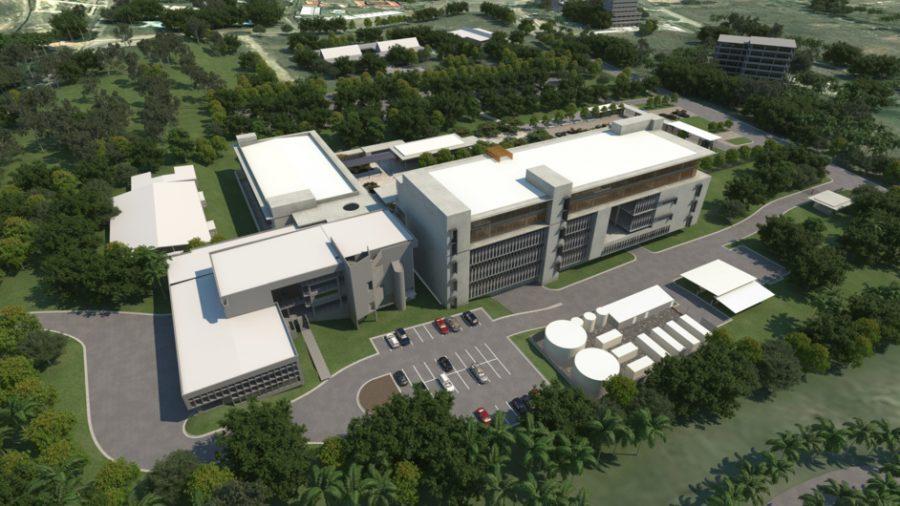Australia must toughen up as well as step up in Papua New Guinea
Posted By Jeffrey Wall on June 24, 2020 @ 11:59

Papua New Guinea’s legal system [1], especially its supreme and national courts, is a true success story. The PNG judiciary is competent, is unaffected by political influence, and resolutely upholds the constitution and the fairness of national elections.
On many occasions since PNG achieved independence in 1975, the courts have declared bills passed by the national parliament to be unconstitutional or illegal.
Australia has played a positive role in helping fund judicial and legal training in PNG, and Australians continue to serve on the bench of the National Court of Justice. Australian lawyers regularly travel to PNG to appear before the courts on a whole range of commercial, and some criminal, matters and do so with absolute confidence in the integrity of the judiciary. The impartiality of the courts is made even more important by the absence of juries in the justice system.
It is therefore galling that the new complex for the supreme and national courts in Port Moresby is being built by a company wholly owned by the government of the People’s Republic of China.
China Railway Construction Engineering Company got the job for around US$190 million [2] in a tender process in which a respected and experienced Australia–New Zealand construction company lodged a significantly lower bid.
This signature project was approved in 2014, before Australia launched its step-up program.
A close inspection of PNG national government tenders across the board reveals an alarming situation that Australia must address in the name of transparency, and to advance the legitimate interests of Australian companies and their PNG partners.
The lion’s share of tenders for state-funded and partner-funded capital works in PNG now goes to PRC-owned companies. China Railway is the most prolific, but it’s not the only one. Most of these contracts have been awarded through a selection process that lacks transparency.
Some funding for roads and other construction and repair work comes from the PRC government—by way of loans that are generally not on favourable terms. Almost none of it is in grant form. On the other hand, Australia’s development assistance to PNG is provided almost entirely as grants. It defies comprehension that PRC companies can bid for some projects funded by Australia.
Australia’s development assistance to PNG is around $600 million a year, easily the largest of any country. A further $440 million was provided during the current financial year as a concessional loan, the initial repayment on which has already been deferred.
Australia also provided $20 million from its project aid budget to the struggling PNG Treasury—in cash that is non-repayable and to be used for recurrent spending. This is a wholly undesirable step. Given the parlous state of PNG’s finances and economy, it will make little difference.
How much more will Australia be asked to provide beyond the appropriate constraints of a development assistance program?
We may be able to do little about the contract process that results in Australian and even PNG companies being excluded from projects such as the courts complex and road construction work.
But a window of opportunity is about to open, and Australia must take it—robustly and urgently.
Legislation to establish the long-promised, and long-delayed, PNG anti-corruption commission is now very close to becoming a reality. Earlier this month, the Independent Commission Against Corruption Bill had its second reading in the parliament and it is expected to pass the final hurdle in August.
Australia must use all its influence with the PNG government to ensure that the new commission is focused on weeding out corruption and misuse of funds at all levels of public administration.
We should offer to second experienced investigators, and perhaps even commissioners, to the new PNG entity to help ensure maximum effectiveness.
The commission’s membership must be dominated by PNG lawyers, accountants and probably judges, but we are in a position to offer substantial assistance.
Many of PNG’s laws have historic links to Australian laws, especially the criminal code. We have played a constructive role in training members of the legal profession, accountants, auditors and even investigative police personnel.
Australia’s Pacific step-up initiative is not without its imperfections. The rushed sea cable between Solomon Islands and PNG to boost internet services may not be perfect; nor may other programs that we have funded and are currently developing, such as rural electrification. Progress on the latter program, very worthy though it is, has been slow, and the cost of internet services facilitated by the cable might be too high for many Papua New Guineans.
But at least we have stepped up.
If we’re to ensure that our development assistance is used properly, and that Australian companies investing and operating in PNG are treated fairly, we must work with PNG to ensure its anti-corruption commission delivers what has been promised.
The chair of the PNG parliamentary committee that scrutinised the bill stressed that it must address the ‘cancer of corruption’ in public and political life.
Australia needs to work with PNG, especially with leaders such as deputy prime minister and attorney-general Davis Steven, who are genuine about reducing corruption and abuse.
That means we shouldn’t be afraid to toughen up our message to our closest neighbour as a matter of urgency.
Article printed from The Strategist: https://aspistrategist.ru
URL to article: /australia-must-toughen-up-as-well-as-step-up-in-papua-new-guinea/
URLs in this post:
[1] legal system: http://www.pngjudiciary.gov.pg/about-the-courts
[2] US$190 million: https://www.marketreportsonline.com/694180.html
Click here to print.